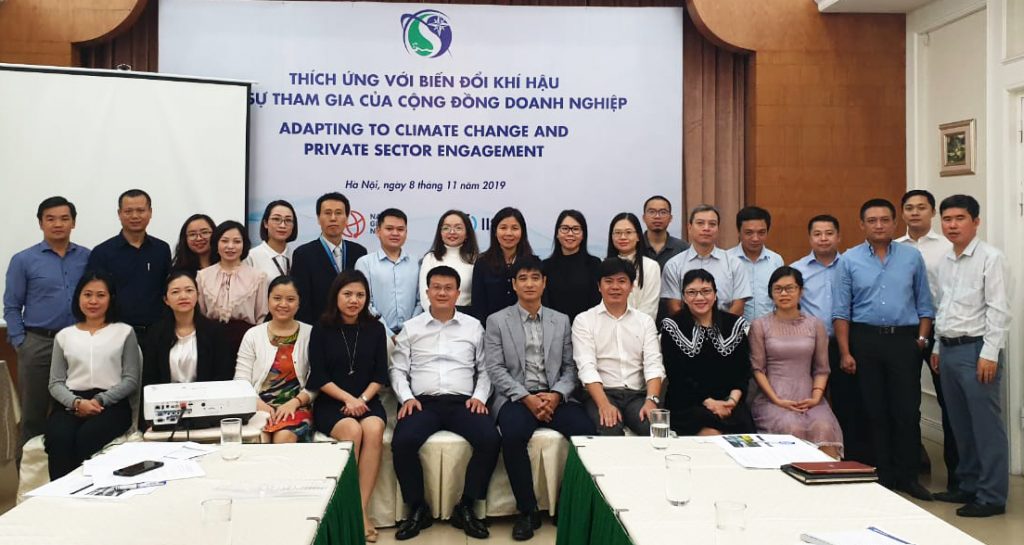
CEOs, directors and senior executives from some of Vietnam’s major companies met in Hanoi last month to discuss how the private sector can take part in Vietnam’s National Adaptation Planning (NAP) process. Hosted by the Vietnamese Ministry of Natural Resources and Environment on November 8, the workshop, Private Sector Engagement for National Adaptation Plan Development, also brought together representatives from academia, NGOs, civil society and the government.
In Vietnam, the private sector accounts for 70 per cent of the country’s GDP, but investments in adaptation are still limited. During the workshop, stakeholders discussed how climate change affects their businesses as well as the main challenges and opportunities for the private sector to get involved in the NAP process. They also had an in-depth conversation about using public–private partnerships as a model to develop adaptation policies and infrastructures for the agricultural (rice and shrimp) and tourism sectors.
The participants talked about the need for peer learning and exchanges within their respective industries and suggested that the private sector could contribute to climate adaptation with the development of technical standards, the training of farmers and the monitoring of adaptation activities, while the government can support them through policies and guidance. For example, representatives from the companies highlighted the importance of developing a clear public–private partnership policy over the next five years. Finally, they noted that banks and insurance companies also need to be involved as key stakeholders in the NAP process.
Vietnam’s NAP document will be completed in 2020 and will build on the achievements of its National Action Plan on Climate Change (NAPCC) from 2012. Technical assistance for the Vietnamese government to develop the country’s NAP Private Sector Engagement Strategy and host this workshop was delivered via the NAP Global Network’s Country Support Hub.